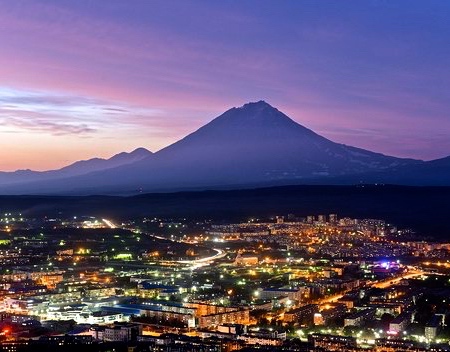“The air and sea were the sole options for leaving. Though Kamchatka was no longer a closed territory by law, the region was cut off from the rest of the world by geography. To the south, east, and west was only ocean. To the north, walling off the Russian mainland, were hundreds of kilometers of mountains and tundra. Impassable. Roads within Kamchatka were few and broken: some, to the lower and central villages, were made of dirt, washed out for most of the year; others, to the upper villages, only existed in winter, when they were pounded out of ice. No roads connected the peninsula to the rest of the continent. No one could come or go over land.”
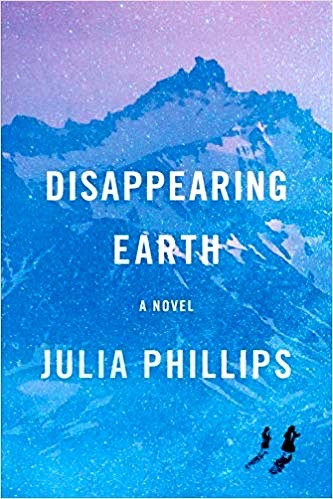 Setting her novel on Russia’s Kamchatka Peninsula, where she spent a year on a Fulbright Fellowship, Russian scholar Julia Phillips creates an involving and very human story about Kamchatka’s women while highlighting the various ethnic groups on the peninsula, their past histories, and the life styles they take for granted. Four families and an assortment of local employees, including a customs officer, a major general, a police assistant, and a volcanologist studying some of Kamchatka’s twenty-seven volcanos, reflect everyday life in a series of episodes which sometimes overlap. In its isolation and its relatively sparse population, Kamchatka often feels more like an island than a part of greater Russia, and any dramatic event which occurs is likely to remain within the community in which it occurs, very much in the style of a “closed room” mystery story. Two mysteries involving crimes against women lurk at the heart of this novel, but they are the inspiration for a dramatic portrait of daily life on Kamchatka, developed month by month over the course of a calendar year, and not simply an end in themselves.
Setting her novel on Russia’s Kamchatka Peninsula, where she spent a year on a Fulbright Fellowship, Russian scholar Julia Phillips creates an involving and very human story about Kamchatka’s women while highlighting the various ethnic groups on the peninsula, their past histories, and the life styles they take for granted. Four families and an assortment of local employees, including a customs officer, a major general, a police assistant, and a volcanologist studying some of Kamchatka’s twenty-seven volcanos, reflect everyday life in a series of episodes which sometimes overlap. In its isolation and its relatively sparse population, Kamchatka often feels more like an island than a part of greater Russia, and any dramatic event which occurs is likely to remain within the community in which it occurs, very much in the style of a “closed room” mystery story. Two mysteries involving crimes against women lurk at the heart of this novel, but they are the inspiration for a dramatic portrait of daily life on Kamchatka, developed month by month over the course of a calendar year, and not simply an end in themselves.
“August” opens with two girls, Alyona, age eleven, and Sophia, age eight, walking along the waterfront below St. Nicholas Hill in Petropavlosk-Kamchatsky, the main city of the peninsula, located near its southernmost tip. Alyona has been in charge of Sophia for the whole summer, as their single mother, a journalist, needs to work. She has often left them money for the cinema or to take bus rides to other parts of the city, and on this day, Alyona and Sophia have taken the bus to the waterfront, as it is one of the first warm days they have had this summer. Alyona amuses Sophia by telling her about Zavoyko, a village not far away which completely vanished, years ago, washed away in an earthquake. As they explore, they are observed by a young man, an “overgrown teenager,” who asks them for help as they return to the city. He has fallen and injured his foot and needs help getting to his car. He offers to drive them home. On the ride, he misses the turn for their house, then captures Alyona’s phone, “I have a rule…no phones while I’m driving.” Alyona, catching on quickly and fearing for the future, keeps her sister from becoming upset by continuing her story of the village which disappeared into the ocean. No big tale of violence, no description of their interactions beyond this, and no details about what happened when they arrived at the person’s house are included. Readers will supply all of that from their own imaginations.
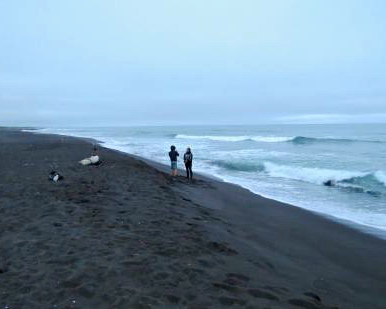
Two girls walk along the beachfront in Petropavlovsk-Kamchatsky, the largest city on the Kamchatka Peninsula.
In “September” posters are up with the pictures of Alyona and Sophia, the two missing girls, and all the females in Petropavlovsk-Kamchatsky are aware of what has happened. Olya, a schoolgirl, spends much time alone during the summer, since her single mother is gone all week working as an interpreter “up north.” To keep busy, Olya capitalizes on her friendship with Diana, her best friend, from a more prominent family. Suddenly, however, Diana’s mother fears that the free-wheeling Olya might be a bad influence on her daughter, and prohibits Diana from seeing her. Alone on the bus and later on the beach, Olya is accosted by a policeman who wants to know if her name is “Alyona.” She is furious – she is older and not a “tiny thing, small-boned and fragile” like Alyona and her sister, and she resents being interviewed about this. She feels no compunction about lying to the policeman about how long she’s been at the beach, where her mother is, when her mother is coming back (not for two weeks), and who is calling her on her cellphone when the policeman arrives, a vivid picture of some of the issues surrounding the disappearance of the two girls in a community in which girls are expected to be independent by many but also molested by some.
“October” introduces a woman who, unmarried at thirty-six, is camping with her new boyfriend, a researcher at the volcanic institute. They discuss the fact that the police have now begun to think the sisters have been taken off the peninsula. Both believe that to be impossible because of the geography, and the woman, Katya, has a friend who believes she actually witnessed the girls’ abduction. “December” shows a romance between an ethnic young woman from Esso, to the north, where her parents are herders who live in a yurt, and her boyfriend who is “white,” descended from Russians. He demands to know where she is all the time, fearful about her safety but possessive to a dangerous degree. When she meets an ethnic man from Palana, a fishing community even farther to the north than Esso, their relationship begins to develop. They comment on the fact that while everyone, everywhere, is looking for the two missing little girls from Petropavlovsky-Kamchatsky, both of whom are Russian and white, another girl from Esso, an ethnic girl, has been missing for three years with little publicity or attention. “New Year’s” raises the issue of two lesbian women who must live very secret – and very fearful – lives, “If you let your guard down, they will come for you.” In “March,” an Esso woman and her 5-year-old daughter are about to go to Palana, in the farthest north to start over. Her parents work in the reindeer fields, and she needs to consider if she will really go back or stay where she is, where she has little support but a more independent life.
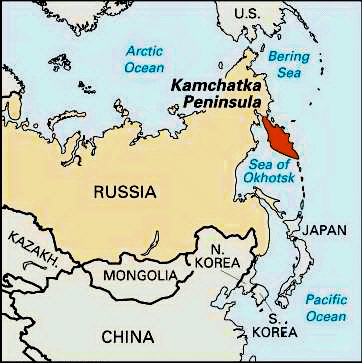 As the months pass and the characters sometimes overlap, the focus on the mothers and their special issues, and the female characters who must be both independent in their care of families and children, while often their sole support, becomes more fully developed. In addition, ethnic issues and issues of color play a role in society and in the attitudes of police toward crimes. By July, a fortuitous resolution to the issues of the missing women is reached, one which some will celebrate while others may find more “convenient” than realistic. Throughout, the author lets the facts speak for themselves and avoids the temptation to stir up emotions through sentimental language and heavily “charged” commentary as the action develops. Ultimately, author Phillips inspires readers to supply their own interpretations of what is happening within her carefully crafted conclusion, thereby creating far more realistic drama than what one finds in the typical suspense novel. Unforgettable!
As the months pass and the characters sometimes overlap, the focus on the mothers and their special issues, and the female characters who must be both independent in their care of families and children, while often their sole support, becomes more fully developed. In addition, ethnic issues and issues of color play a role in society and in the attitudes of police toward crimes. By July, a fortuitous resolution to the issues of the missing women is reached, one which some will celebrate while others may find more “convenient” than realistic. Throughout, the author lets the facts speak for themselves and avoids the temptation to stir up emotions through sentimental language and heavily “charged” commentary as the action develops. Ultimately, author Phillips inspires readers to supply their own interpretations of what is happening within her carefully crafted conclusion, thereby creating far more realistic drama than what one finds in the typical suspense novel. Unforgettable!
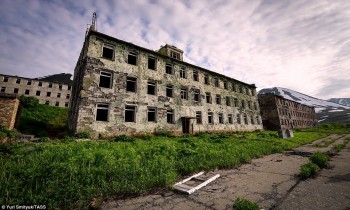
In 1960, Nikita Krushchev established a military garrison on the peninsula, shortly before the Cuban Missile Crisis, when the Cold War was at its height. It remained there until 1996, when Boris Yeltsin closed it.
Photos: The author’s photo appears on http://www.bookbrunch.co.uk/
The beachfront in Petropavlovsk-Kamchatsky is from https://www.tripadvisor.co.za
A volcanic mountain, one of twenty-seven on the peninsula, overlooks Petropavlovsk-Kamchatsky: http://russiatrek.org
The map of the Kamchatka Peninsula may be found on https://www.pinterest.com/
Now a ghost town and tourist attraction, this military installation in an almost inaccessible part of the peninsula was built in 1960, at the height of the Cold War by Nikita Krushchev. It remained there until 1996, when Boris Yeltsin closed it. https://www.dailymail.co.uk/

